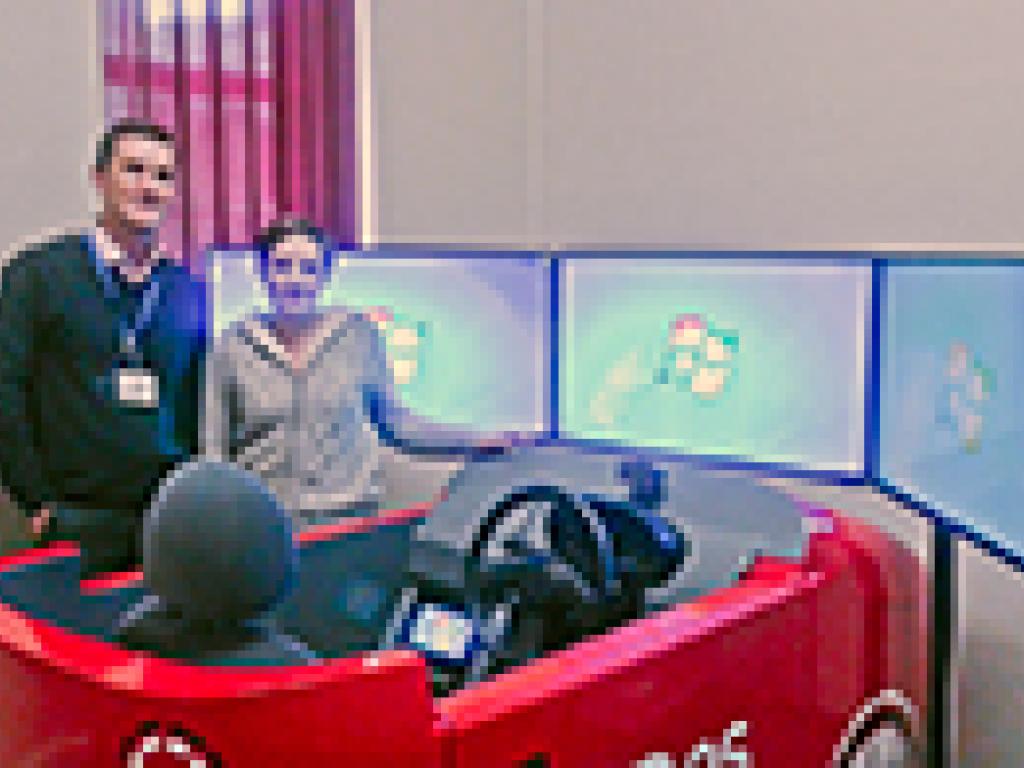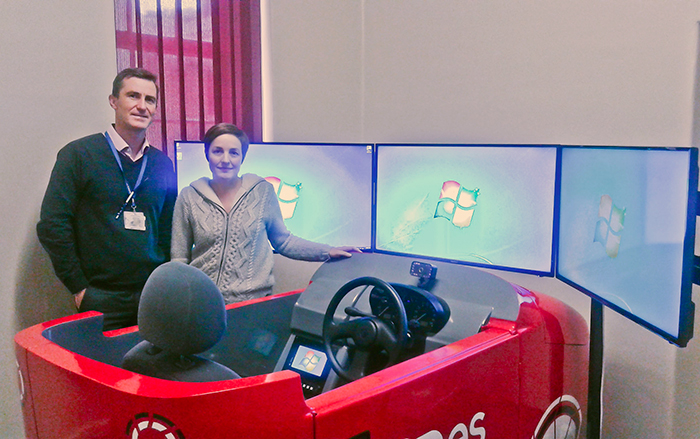New vehicle simulator to navigate study on effects of brain disorders on driving

A light motor vehicle simulator (vSIM) recently acquired by the Division of Neuropsychiatry’s HIV Mental Health Research Unit will facilitate medical research into the effects of brain disorders on real world functions such as driving.
“Driving is a useful window on neuropsychological function, as it requires several domains to be intact, including attention/concentration, visual memory, visuo-spatial function and executive function,” says Associate Professor John Joska.

Associate Professor John Joska and Dr Hetta Gouse from the Department of Psychiatry & Mental Health with the vSim
A collaborative effort with the Divisions of Geriatric Medicine, and Public Health Medicine, the research will explore the impact of a range of risk factors - such as hypertension, diabetes, and HIV - on neurocognition and driving simulator performance.
The vSIM was acquired from a 2015 grant of the University Equipment Committee (UEC).
The simulator is equipped with three customised terrains to mimic different road scenarios intended to gather information that might be specific to different driver groups, to high and low risk situations, and to capture situations that might have specific relevance to certain neuropsychological impairment. Researchers plan to recruit approximately 200 professional drivers, from one or more companies, with one or more vascular risk factors, and/or HIV infection, as these may exert a negative effect on neuropsychological function.
Joska explains that the rationale for the study, which is currently under revision for the Human Research Ethics Committee (HREC), is two-fold:
- The risk factors exert a profound impact on brain function, especially with ageing, which has the potential to affect an enormous number of individuals.
- The lack of sufficient ecological measures of real-world functional impairment in the clinic affords an opportunity to link paper-and-pencil neuropsychological performance with a near-real-world simulation of a functional domain.
Recruitment will begin in January 2016, and the study should take two years to complete. The Unit is collaborating with Thomas Marcotte, of the University of California San Diego (UCSD), HIV Neuro-behavioural Research Programme, and a Visiting Scholar.